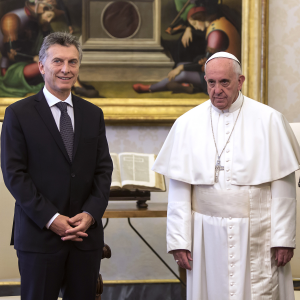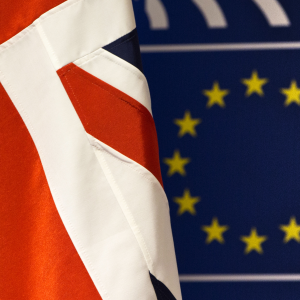Catholics last night debated the question of whether Britain should remain in the EU or leave at an event in Westminster Cathedral Hall organised by Catholic Voices. The motion, that “Catholic values are best served by Britain remaining in the European Union” was proposed by Conservative MP Tom Tugenhadt and Lib Dem peer Baroness Julie Smith and opposed by Labour MP Gisela Stuart and Daily Telegraph journalist Tim Stanley, with BBC journalist Ed Stourton in the chair.
Tugenhadt began by saying it was a tragedy that Britons were invited to say “I am British and not European,” emphasising the importance of solidarity across Europe and arguing that UK membership helps cement this solidarity. This too was the tenor of Smith’s contribution.
Stanley and Stuart both pointed out that while the principle of subsidiarity was once touted as fundamental to the EU way of doing things it was now almost universally ignored by Brussels. The economic plight of Italy and Spain as well as Greece were cited as evidence. Stuart, a German-born Briton, claimed that Greeks were suffering “to help German consumers”.
Meanwhile Brussels’ lack of interest in the legalising of euthanasia in the Benelux countries was offered as one example of the absence of Catholic values on the part of those running the EU today. The proposers reminded the audience that the EU started with the Treaty of Rome as a visionary project of Catholic founders. The opposers pointed out that it was hard to find a trace of that Catholic vision in the EU today, one of the clearest examples being the refusal to mention Europe’s Christian roots in the constitution.
Speakers on all sides agreed that Europe had a duty to help refugees, but proposers felt this was better achieved from within the EU while opposers argued that if Britain was in charge of its own immigration rules it could be more effective.
Stuart pointed out that Britain had for 300 years been a “supranational “ state that had learned how to remain united. The EU was a response to the “darker side of nationalism” that brought catastrophe in the last century but had still not been successfully addressed. The EU is a “political project that has failed to acquire the consent of the people”, argued Stuart.
Stourton announced after the speeches from the platform that on arriving 45 per cent of the 300-strong audience had declared themselves remainers, 30 per cent leavers, with 25 per cent undecided. A post-debate count showed a marked shift towards “leave” though “remain” was still in the majority.




 Loading ...
Loading ...